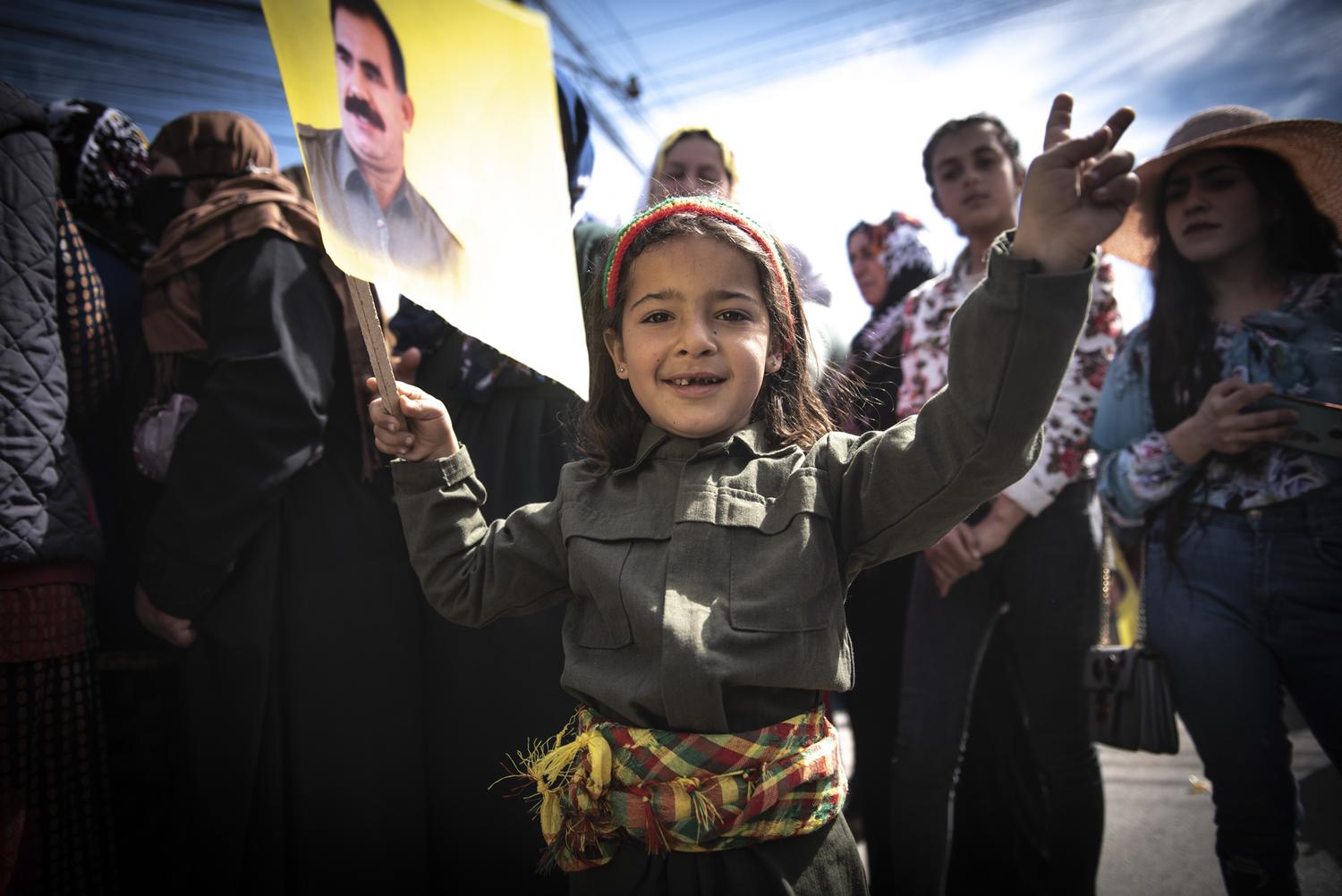
- On 15 February 1999, Abdullah Öcalan, head of the Kurdish independence movement of the Kurdish Workers’ Party (PKK), was arrested. Since the Turkish secret services arrested Kenya, he has been isolated in Iämralä prison on an island in the Marmara Sea.

When he was arrested, Öcalan was the leader of the liberation movement of Kurdistan, a movement fighting for the self-determination of a landless people, divided between Turkey, Syria, Armenia, Iraq and Iran. In northwestern Syria, the PKK leader has since become a regional icon that inspired the Rojava Revolution. This experience has brought together feminist, environmental, anarchist, municipal and direct democracy elements in the midst of the war.
Last December, members of the IACTA lawyers’ group and the Observatory of the Criminal System and Human Rights (OHCHR) of the University of Barcelona visited the Kurdish area of Turkey and Bakur to learn first-hand about the situation of Öcalan and other Kurdish political prisoners. They held meetings with human rights groups, professional groups and Kurdish civil society associations, and witnessed the systematic violation of human rights in Turkish prisons and the torture of Kurdish prisoners.
The annual report on isolation and torture in public prisons has recently been published, the publication of which coincides with the 25-year prison in Öcalan and the international call for its release. A conference on the situation of the leader of the CPC and Turkish political prisoners will also be held at the European Parliament’s headquarters on 16 February.
The report "shows the enormous conditions that the Kurdish leader and other prisoners have in Imrali prison, with long periods of isolation, restrictions on family visits and lawyers and restricted access to external communication". So far Turkey has not taken account of the many international complaints, such as those made by the UN Commission on Human Rights.
Since IACTA and the OHCHR, the Spanish State and the European Union have been accused of "ignoring" the "excesses" committed by President Recep Tayyip Erdogan. According to these institutions, Spain and the EU "continue to finance Erdogan's genocidal policy, because Turkey acts as a barrier to immigration, and because NATO and the armies of various states have military bases there, and Turkey is an essential node for energy transport between Europe and Asia".
On the life of political prisoners
The head of the CPC was sentenced in 1999 by Turkey to life imprisonment for the crimes of treason and separatism. For ten years he was the only prisoner of the Imrali, located in the Marmara Sea, on the island of the same name. It was originally a prison designed to isolate one prisoner, but there are currently five other Kurdish political prisoners: Hamili Yildirim, Ömer Hayri Konar, Veysi Aktas, Nasrullah Kuan and Çetin Arkas.
According to the report, the isolation regime applies "systematically" to Kurdish political prisoners, i.e. they are isolated 23 hours a day, a situation that can last for decades. In some cases, they are also prohibited from interacting in a single hour that may have an external relationship between them.
In the case of Öcalan, the judgments of the Turkish courts have often limited the visits of the prisoner, arguing security problems. The UN Committee on Prevention against Torture has carried out nine studies on human rights violations in Öcalan prison, and in all cases the Turkish Government has not taken into account the recommendations to improve its situation.
Following the last visit to the centre in 2022, the UN Commission decided not to publish the report, arguing that the Turkish Government had not given its consent to this, but according to Öcalan lawyers this excuse has no reason to be.
As early as 2003, the European Court of Human Rights condemned Turkey for violating Öcalan’s rights, both for denying the possibility of a fair trial and for communicating with lawyers and family. In addition, due to its arrest and complete isolation until 2009, the Court ruled in 2014 the infringement of Article 3 of the European Convention on Human Rights.
Since IACTA and OSPDH, they have denounced that the situation in Öcalan and other political prisoners is not exceptional, but is "part of a planned and comprehensive strategy". Thus, prisoners imprisoned for being related to the movement of freedom from curves “are locked in prisons specially designed for long-term isolation.”
According to these institutions, the Turkish judicial system "is being used out of court for the political repression of the Kurdish people". The excuse of terrorism "is used to monitor and suppress the political will of the Kurdish people and as a tool for ethnic cleansing".
[This article was in original Spanish version and has been translated into ARGIA.]